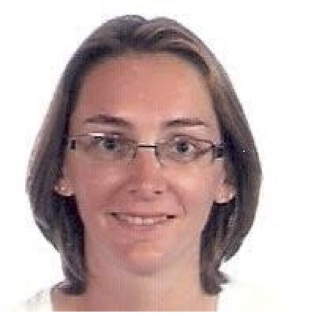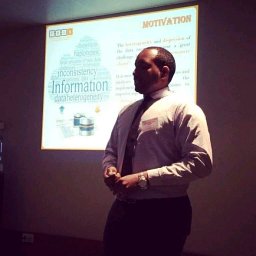The 2nd International Workshop
on Conceptual Modeling for Life Sciences


November 11th, 2022: the first articles extended from CMLS 2022 papers for BMC Supplements are being published these days! Check them out here:
The recent advances in unravelling the secrets of human conditions and diseases have encouraged new
paradigms for their prevention, diagnosis, and treatment. As the information is increasing at an
unprecedent rate, it directly impacts the design and future development of information and data
management pipelines; thus, new ways of processing data, information, and knowledge in health care
environments are strongly needed.
The second edition of the workshop aims to continue being a meeting point for Information Systems
(IS), Conceptual Modeling (CM), and Data Management(DM) researchers working on health care and life
science problems, and an opportunity to share, discuss and find new approaches to improve promising
fields, with a special focus on Genomic Data Management - how to use the information from the genome
to better understand biological and clinical features - and Precision Medicine - giving to each
patient an individualized treatment by understanding the peculiar aspects of the disease.
From the precise ontological characterization of the components involved in complex biological
systems to the modeling of the operational processes and decision support methods used in the
diagnosis and prevention of diseases, the joined research communities of IS, CM, and DM have an
important role to play; they must help in providing feasible solutions for a high-quality and
efficient health care.
The recent COVID-19 pandemic has attracted increasing attention to the genetic mechanisms of humans
and viruses. CMLS may become an additional forum for discussing the responsibility of the conceptual
modeling community in supporting the life sciences related to this new reality.
The second edition of the workshop focuses on Conceptual Modeling as a means for facing the challenges that emerge when designing and developing systems for life sciences, focused on genomics and precision medicine. The workshop is not restricted to specific research methods; we will consider both conceptual and empirical research, as well as novel applications.
The topics of interest include, but are not limited to:
We invite submissions of high quality papers describing original and unpublished results
regarding
any of the workshop’s topics of interest.
CMLS 2021 proceedings will be part of the ER 2021
Workshop volume published by Springer in the LNCS series.
The authors must submit manuscripts using the Springer-Verlag LNCS style for Lecture Notes in
Computer Science.
For style files and details, see the page http://www.springer.de/comp/lncs/authors.html.
The page limit for workshop papers is 10 pages.
Papers must be submitted as PDF files using EasyChair at https://easychair.org/conferences/?conf=cmls2021.
To ensure high quality, all papers will be thoroughly peer reviewed by the Program Committee.
Manuscripts not submitted in the LNCS style or having more than 10 pages will not be reviewed
and
thus automatically rejected.
The papers need to be original and not submitted or accepted for publication in any other
workshop,
conference, or journal.
Submission to CMLS 2021 will be electronically only.
The papers accepted to the workshop's last edition CMLS 2020, published within the Springer volume Advances in Conceptual Modeling, have been invited to submit a revised and extended version for a post-conference supplement in the journal BMC Bioinformatics journal (2-year IF 2.511, SJR 1.374). We are working towards an agreement with the same journal also for this year.
Anna Bernasconi works as a researcher in Politecnico di Milano, within the “Data-driven Genomic Computing” ERC Awarded project (2016-2021), under the supervision of Professor Stefano Ceri. In 2015 she obtained a Master of Science in Computer Engineering from Politecnico di Milano and a Master of Science in Computer Science from University of Illinois at Chicago with a thesis on Formal Methods. Her research is on bioinformatics data and metadata integration methodologies to support complex biological query answering. Main expertise areas include conceptual data design, data integration, data cleaning, semantic web, data analysis; she is passionate about models and methods formalization.
Arif Canakoglu currently works as a postdoctoral researcher at Politecnico di Milano; he is involved the “Data-driven Genomic Computing” ERC Awarded project (2016-2021), where he contributes for developing integration methods for heterogenous genomic data and computational methods for genomic applications. In 2016 he received his PHD on biomolecular knowledge data integration (by using a modular schema data warehouse). His research interests include data integration and data driven genomic computing, big data analysis and processing on cloud computing, as well as artificial intelligence applications. His main areas of expertise are heterogenous data integration, data driven/machine learning knowledge discovery approaches in genomics, and big data processes with focus on cloud computing.

Ana León, PhD in Computer Science (2019, Universitat Politècnica de València), is also University Expert in Medical Genetics and Genomics by the Universidad Católica de Murcia. Her main research topics include Conceptual Modeling, Genomic Data Science, Explainable AI, Data Quality and Information Systems. Currently, she is researcher at the Research Center on Software Production Methods (PROS-UPV) where her research activity is focused on the use of conceptual models for the development of Genomic Information Systems, as well as the definition of a systematic process for the search, identification, load and exploitation of DNA variants in the context of Precision Medicine.

José F. Reyes R. is a researcher at PROS Research Center at Universitat Politècnica de València (Spain). He holds a Ph.D. in Computer Sciences (2018) from Universitat Politècnica de València (UPV, Spain), a MSc in Software Engineering, Formal Methods and Information Systems (2013) from UPV (Spain), a Diplomate of Analysts and Systems Designers (2011) and a University Degree in System Engineering (2010) from Universidad Central del Este (Dominican Republic). Currently, his main research activities are centered on the use of Conceptual Models for the development of Genomic Information Systems (GeIS). His main research interests include Conceptual Modeling, Genomic Data Science, Engineering Requirements, SE and Information Systems.